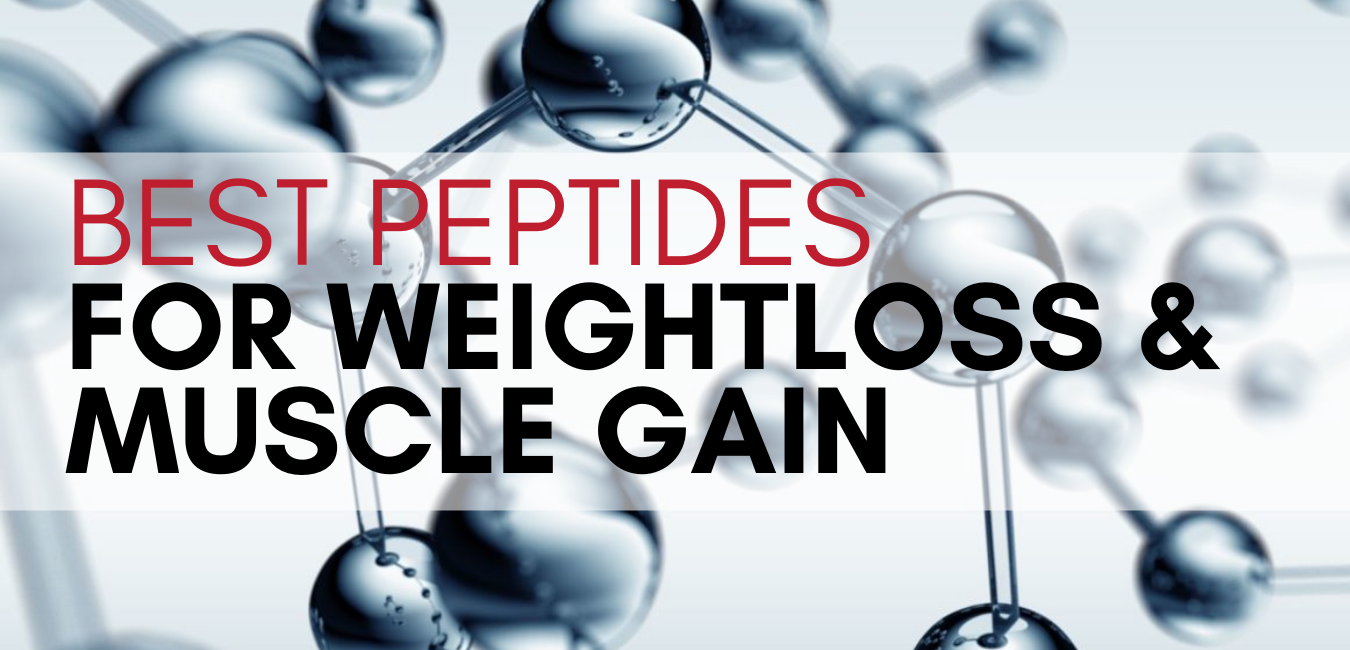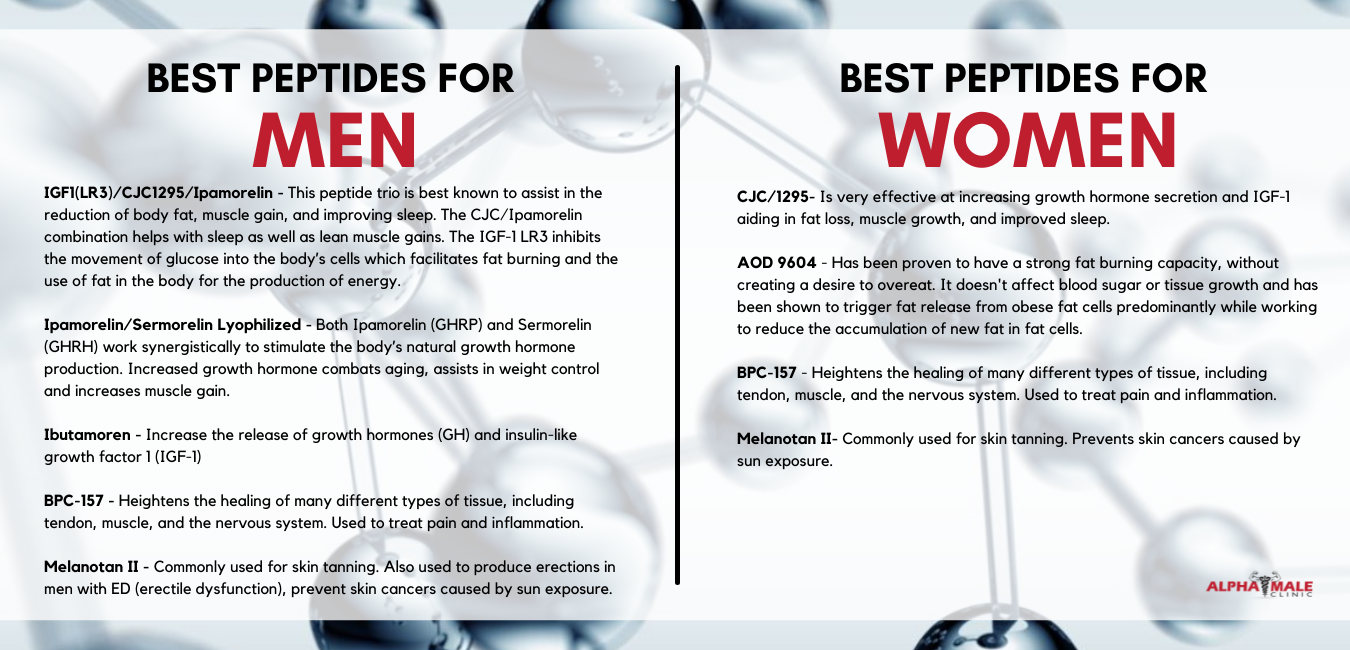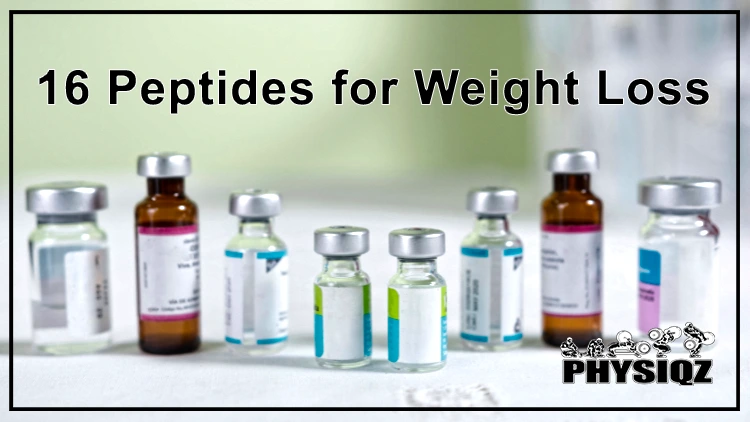Best Peptides For Weight Loss And Muscle Gain

BREAKING: The search for effective weight loss and muscle gain solutions has intensified, with peptides emerging as a controversial yet promising option.
This report cuts through the noise, delivering a factual overview of the top peptides being researched for their potential to reshape bodies and boost athletic performance.
The Peptide Landscape: Key Players
Several peptides are generating significant buzz. We'll focus on those with the most clinical and anecdotal evidence.
CJC-1295 with Ipamorelin
CJC-1295 is a Growth Hormone Releasing Hormone (GHRH) analog. It extends the half-life of growth hormone release in the body.
Ipamorelin is a Growth Hormone Releasing Peptide (GHRP). It stimulates growth hormone release without significantly increasing appetite or cortisol levels.
When combined, these peptides may promote fat loss, muscle growth, and improved sleep, according to preliminary research and user reports.
AOD-9604
AOD-9604 is a modified form of human Growth Hormone (hGH).
Studies suggest it can stimulate lipolysis (fat breakdown) and inhibit lipogenesis (fat formation).
Unlike hGH, AOD-9604 has not been shown to affect blood sugar or growth, making it a potentially safer alternative for some.
BPC-157
While primarily known for its healing properties, some users report improved body composition while taking BPC-157.
BPC-157 (Body Protection Compound-157) is a synthetic peptide sequence of a partial sequence of the human Body Protection Compound (BPC) that is discovered in and isolated from human gastric juice.
Its role in modulating inflammation and gut health may indirectly support weight management efforts.
Tesamorelin
Tesamorelin is a synthetic peptide analog of growth hormone-releasing hormone (GHRH).
The Food and Drug Administration (FDA) approved tesamorelin to reduce excess abdominal fat in HIV-infected patients with lipodystrophy.
While not explicitly for weight loss in the general population, it demonstrates the potential of peptides to target specific fat deposits.
Crucial Considerations: Risks and Legality
The use of peptides for weight loss and muscle gain is NOT without risk. Many are not FDA-approved for these purposes.
The long-term effects of peptide use are largely unknown.
It's critical to understand the legal status of these substances in your region. Regulations vary widely, and sourcing peptides from unreliable vendors can be dangerous.
Who is Using Peptides?
Athletes, bodybuilders, and individuals seeking rapid body transformations are increasingly experimenting with peptides.
The lack of regulation and widespread availability online make peptides accessible to a broad audience, despite the potential risks.
Where are Peptides Sourced?
Peptides are primarily sourced online through research chemical companies and peptide suppliers.
The quality and purity of these products can vary significantly, making it crucial to research vendors thoroughly.
Some compounding pharmacies may also offer peptides with a prescription.
When Should You Consider Peptides?
Never self-medicate with peptides. If you're considering peptide therapy, consult with a qualified healthcare professional first.
Discuss your goals, medical history, and potential risks before starting any peptide regimen.
Peptides should be considered as part of a comprehensive weight loss and muscle gain strategy that includes diet, exercise, and lifestyle modifications.
How Do Peptides Work?
Peptides work by mimicking or modulating natural hormonal processes in the body.
They can stimulate the release of growth hormone, increase fat burning, and promote muscle protein synthesis.
The specific mechanisms of action vary depending on the peptide.
Next Steps and Ongoing Developments
Further research is needed to fully understand the long-term effects and safety of peptides for weight loss and muscle gain.
The FDA continues to monitor the peptide market, and regulatory actions may be taken against companies selling unapproved or misbranded products.
Stay informed about the latest research and regulatory updates before considering peptide therapy.


















